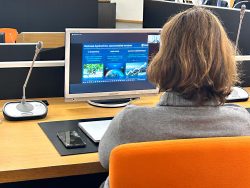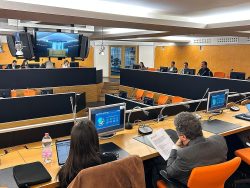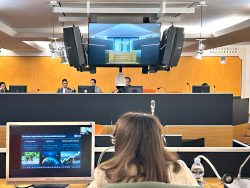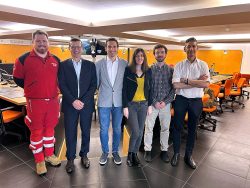Success for the First MASAI Workshop
The first MASAI workshop, held on April 11th at Eucentre, marked an important step forward in the same name project, an innovative platform using SAR and very high resolution optical images for rapid and accurate damage assessment in humanitarian crises and natural disasters.
The workshop was well attended by the various collaborators and supporters of the project: TerrAria, as coordinator, Gisky and the Eucentre Foundation, as partners, played a key role. In addition, the presence of the European Space Agency (ESA), which funded the project, enriched the event with details of the Space in Response to Humanitarian Crisis call and its role in promoting innovative satellite solutions. Important contributions also came from the CRI (Italian Red Cross), IUSS and the Civil Protection Department, who discussed the use of satellite technologies in earth observation.
The workshop was well attended, with around two hundred participants remotely and thirty in person. The feedback received was extremely positive, and the content’s quality and relevance were appreciated. During the workshop, the potentially revolutionary impact of the MASAI platform on crisis and emergency management was discussed. As no similar service is on the market, MASAI promises to be an enormously valuable solution capable of rapidly providing detailed damage maps in conflict or natural disaster scenarios.
The project will now enter a pilot phase to evaluate the effectiveness of the proposed service requirements and finalise the details that are still being worked out. The partnership also plans to continue disseminating the project by participating in thematic conferences further to disseminate the knowledge and applications of the MASAI platform.
This first MASAI workshop not only outlined the current and future capabilities of the platform but also strengthened the collaboration between the participating organizations, paving the way for a significant impact in the field of emergency response and crisis management.





